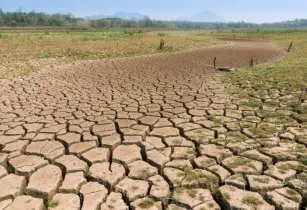Inter-governmental Authority on Development (IGAD) and the UN’s Food and Agriculture Organization (FAO) have called for urgent action as vulnerable communities in the IGAD region continue to experience droughts that are eroding their flexibility to food and nutrition insecurity
In a joint statement by the IGAD executive secretary Dr Workneh Gebeyehu and FAO subregional coordinator for Eastern Africa, Dr Chimimba David Phiri, it has been noted that as of October 2021, 26 million people were already facing high levels of food insecurity (IPC Phase 3+), according to the Food Security and Nutrition Working Group (FSNWG), which is co-chaired by IGAD and FAO. Due to the threat of worsening drought conditions, food insecurity might worsen during the first half of 2022 across the Horn of Africa. Urgent action is therefore required now to safeguard livelihoods, save lives, and prevent possible starvation in some areas.
Drought conditions are already affecting the arid and semi-arid lands of Kenya, southern and central Somalia, and Belg-receiving areas of southern and south-eastern Ethiopia as consecutive poor rainfall seasons have driven below-average crop production, rising cereal prices, poor rangeland conditions, reduced livestock production, and drought-related animal deaths in many areas.
Moreover, as forecast by the IGAD Climate Prediction and Applications Centre (ICPAC), the start of the current October-December 2021 rainy season has been significantly delayed, with little to no rainfall observed to date in many areas, raising the probability of another poor season. Should this happen, agricultural and pastoral conditions will further deteriorate, causing households already struggling with the effects of multiple, concurrent hazards (climate variability, conflict, COVID-19, and desert locusts) to employ negative coping strategies and reduce their food consumption. This is a major source of concern as food insecurity in the region has historically increased sharply following consecutive poor rainfall seasons.
IGAD Member States continue to work in collaboration with development partners to anticipate and respond to various food security threats and build the resilience of vulnerable communities to recurrent threats and crises. IGAD and FAO share a long-standing history of successful partnership and collaboration in building the region’s resilience in several areas, including but not limited to livelihood support to strengthen resilience against droughts.
Such resilience-building efforts have significantly improved the ability of households to withstand the impacts of shocks. However, the increased frequency of climatic hazards, combined with the effects of other stressors, is threatening these hard-won gains. It is, therefore, crucial to act now to protect these resilience gains and prevent more people from sliding into food insecurity and malnutrition.





